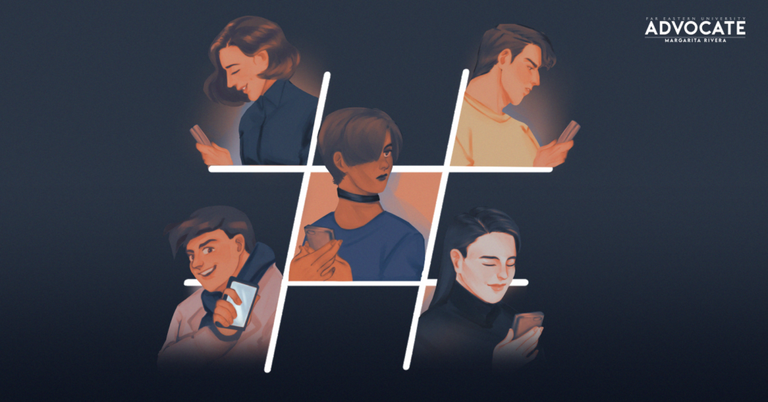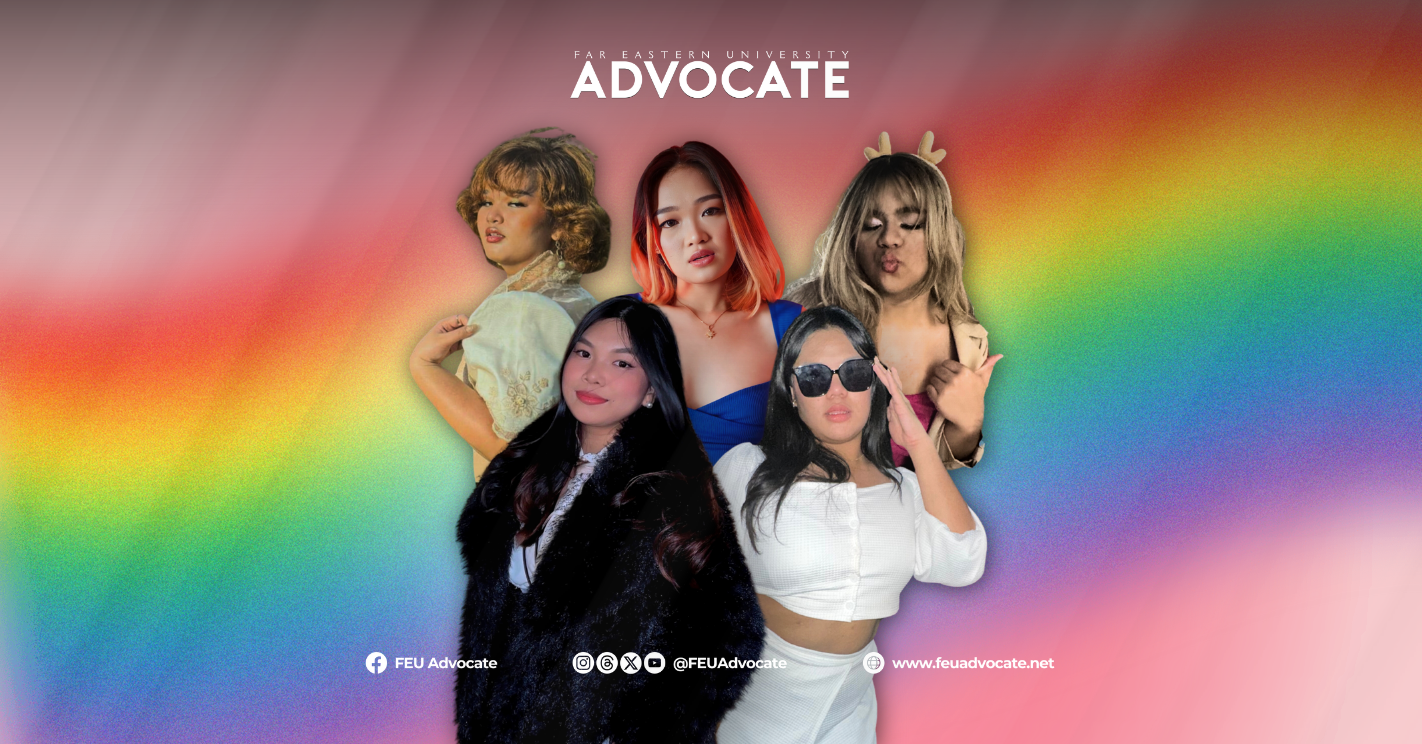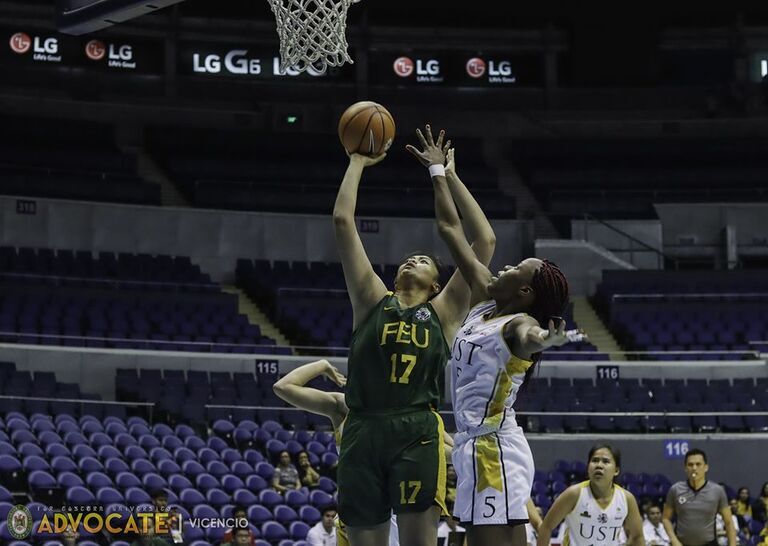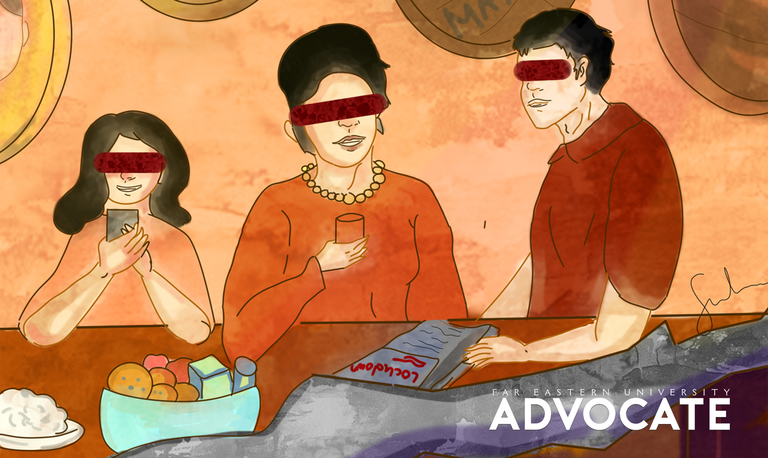
Axie Infinity: a game of highs and lows
- February 08, 2022 04:31
FEU Advocate
December 14, 2021 03:47

In a high-stakes political affair that will dictate the future of the Philippines, the Filipinos’ involvement— both online and offline— has a resounding reach. As thousands logged onto digital spaces to air their thoughts, the support and criticism toward electoral candidates trended in a display of public sentiment.
Converging into a domain unhindered by the archipelagic geography of the country, social media’s potential as a power player in politics is quickly harnessed in a bid to move public opinion— be it in one’s favor, or against another.
Netizen-Social Media Dynamics
For the sixth consecutive year, the Philippines registers as the top social media user globally, as reported by advertising firms We Are Social and Hootsuite; while a separate Pulse Asia survey with 2,400 respondents conducted this September records a whopping 99 percent of Filipino netizens owning a Facebook account. At the same time, the survey reports that 57 percent of these cybercitizens own a YouTube account, followed by TikTok (17%), Instagram (14%), and Twitter (8%).
Although these platforms sport different formats of text and media, each is capable of receiving and imparting content that makes them perfect channels for the workings of mass politics. Here, political groups or figures communicate with their followers, whose expression of support or protest may bring together multitudes to the same belief and action— generating a see-saw of favor versus disfavor with each candidate.
Dr. Jeroen Hopster, an academic writer and researcher from the Utrecht University in the Netherlands, offers four designs of social media in populism: the ability to bypass editorial filters, the promotion of a ‘populist style’ of communication, an algorithm that favors the spread of sensational claims, and the allowance of netizens’ real-time reactions to be seen and measured.
Unlike traditional media, social media bypasses editorial filters as it opens a wide avenue for people to release unfiltered content so long as they have an account. This leads to both the proliferation of inaccurate information encouraged by online trolls and the escalation of political views whose cumulative impact can influence the general public.
Having an overwhelmingly large amount of people with internet access who own Facebook accounts in the country truly plays up interactions powered by emotions in the form of ‘like’, ‘love’, ‘haha’, or ‘angry’ reactions, among others. Similar to other platforms mentioned, the number of retweets, hearts, dislikes, and views easily become weapons in identifying lapses and directing political agendas.
This aspect of social media makes it crucial for Filipinos to see beyond the layers of likes, views, and shares— discerning the truthfulness of the message and its implications— before posting and sharing information.
A Double-edged Sword
Banking on the element of democracy essentially boils the netizen-social media dynamic down to the people’s reception of political presentations, and with more than 90 percent of Filipinos with internet access having social media accounts, a huge portion of the election battlefield is taking place in the virtual realm.
At the forefront of the race for the highest electoral seat are Maria Leonor “Leni” Robredo, Panfilo “Ping” Lacson, Emmanuel “Manny” Pacquiao, Ferdinand “Bongbong” Marcos Jr., and Francisco “Isko Moreno” Domagoso,— all employing the far-reaching web of online media.
However, the subsequent division of supporters is slowly proving to be two-edged in its ability to brighten a candidate’s spotlight, while also marking them as targets.
As the only outspoken opposition among the roster, Robredo immediately gained attention and trended on Twitter with #LabanLeni2022 following her announcement on running for the presidency last October 7. Marcos Jr. also trended after filing for candidacy with #BBMIsMyPresident.
Perhaps the top-most dominating candidates, Robredo and Marcos Jr. both taste the zing of the sword from the content of their, and the other party’s, supporters the most— sometimes highlighting their chosen candidate along with the ‘faults’ of the other.
This is, in part, due to the personalization of accounts that promote content based on one’s opinions and preferences— the echo chamber phenomenon— exposing a user to information that reinforces their beliefs while rendering them blind to new perspectives and opposing ideas.
Never a pleasant affair, sparks will continue to fly amid the friction from an increasingly pivotal national election. Yet, the truth of the matter is this: social media is a bubble that must be burst to attain objective information and to reach outside the echo chambers where hashtags and trends may not penetrate.
- Angelic Mizpah Chaste C. Bulanhagui
(Illustration by Maria Margarita Corazon P. Rivera/ FEU Advocate)
References:
Chua, K. (2021, January 28). PH remains top in social media, internet usage worldwide - report [Rappler]. https://www.rappler.com/technology/internet-culture/hootsuite-we-are-social-2021-philippines-top-social-media-internet-usage/
Goodwill Community Foundation. (n.d.). Digital Media Literacy: What is an Echo Chamber? https://edu.gcfglobal.org/en/digital-media-literacy/what-is-an-echo-chamber/1/
Hopster, J. (2020, September 24). Mutual affordances: the dynamics between social media and populism. https://journals.sagepub.com/doi/10.1177/0163443720957889
Loh, M. (2021, December 3). The Philippines' presidential election heats up with boxer Manny Pacquiao and the former dictator's son among 5 surprising candidates duking it out for control. https://www.businessinsider.com/philippines-presidential-election-who-are-manny-pacquiao-bong-bong-2021-11?amp
Malig, K. (2021, October 12). Facebook is most popular social media platform among internet users in Philippines - Pulse Asia [GMA News]. https://www.gmanetwork.com/news/scitech/science/806672/facebook-is-most-popular-social-media-platform-among-internet-users-in-philippines-pulse-asia/story/
Quitzon, J. (2021, November 30). Social Media Misinformation and the 2022 Philippine Elections [The Diplomat]. https://thediplomat.com/2021/11/social-media-misinformation-and-the-2022-philippine-elections/









